Yasujirō Ozu | 2hr 16min

On one side of Noriko’s circle of friends in Early Summer, Fumiko and Takako proclaim that “single people don’t know what true happiness is,” asserting contentment in their marriages while complaining about their husbands. On the other side, Noriko and Aya lightly tease their friends for abiding by traditional institutions that restrict their independence. It is a light-hearted dynamic, and one that acutely represents the cross-sectional divide of social attitudes across Yasujirō Ozu’s post-war Japan, though it is back home where the film truly wrestles with these cultural stakes. As the rift among Noriko’s friends widens, so too does the conflict intensify between generations of Japanese men and women under the same roof, struggling to reconcile the happiness of the individual against the security of the family unit.
There are few filmmakers so stylistically suited to these domestic dramas as Ozu, whose sensitive examinations of familial love and disenchantment offer a platform to voices typically silenced in public arenas. While his camera intermittently turns to broad visions of Tokyo’s impressive structures and greyscale landscapes, his character work flourishes in homes infused with the rich lives of their inhabitants. Shoji doors and hallways are often layered deeply into his shots, creating a funnelling effect that geometrically narrows each successive frame into the background, and wraps up families in cosy compositions.
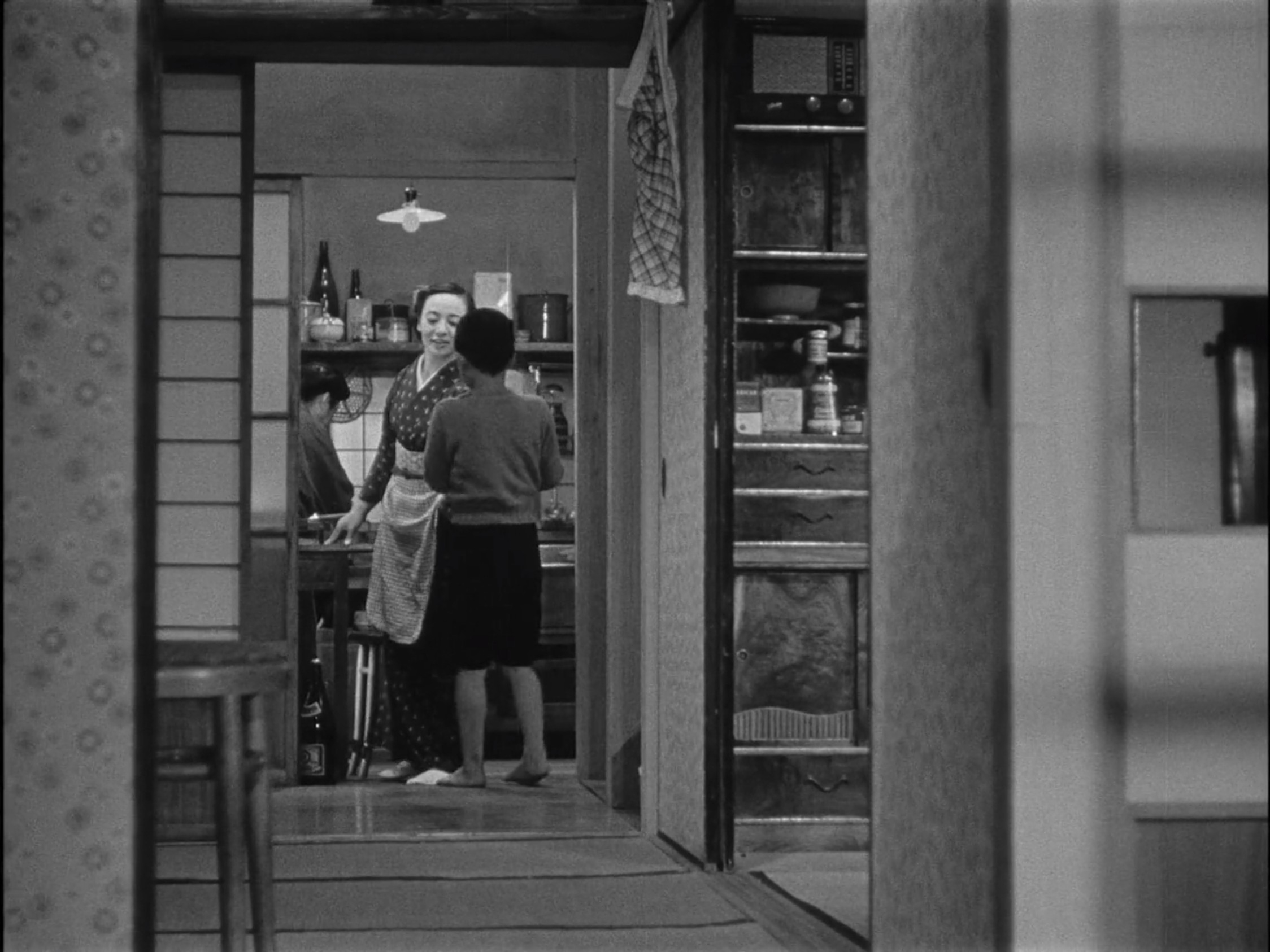
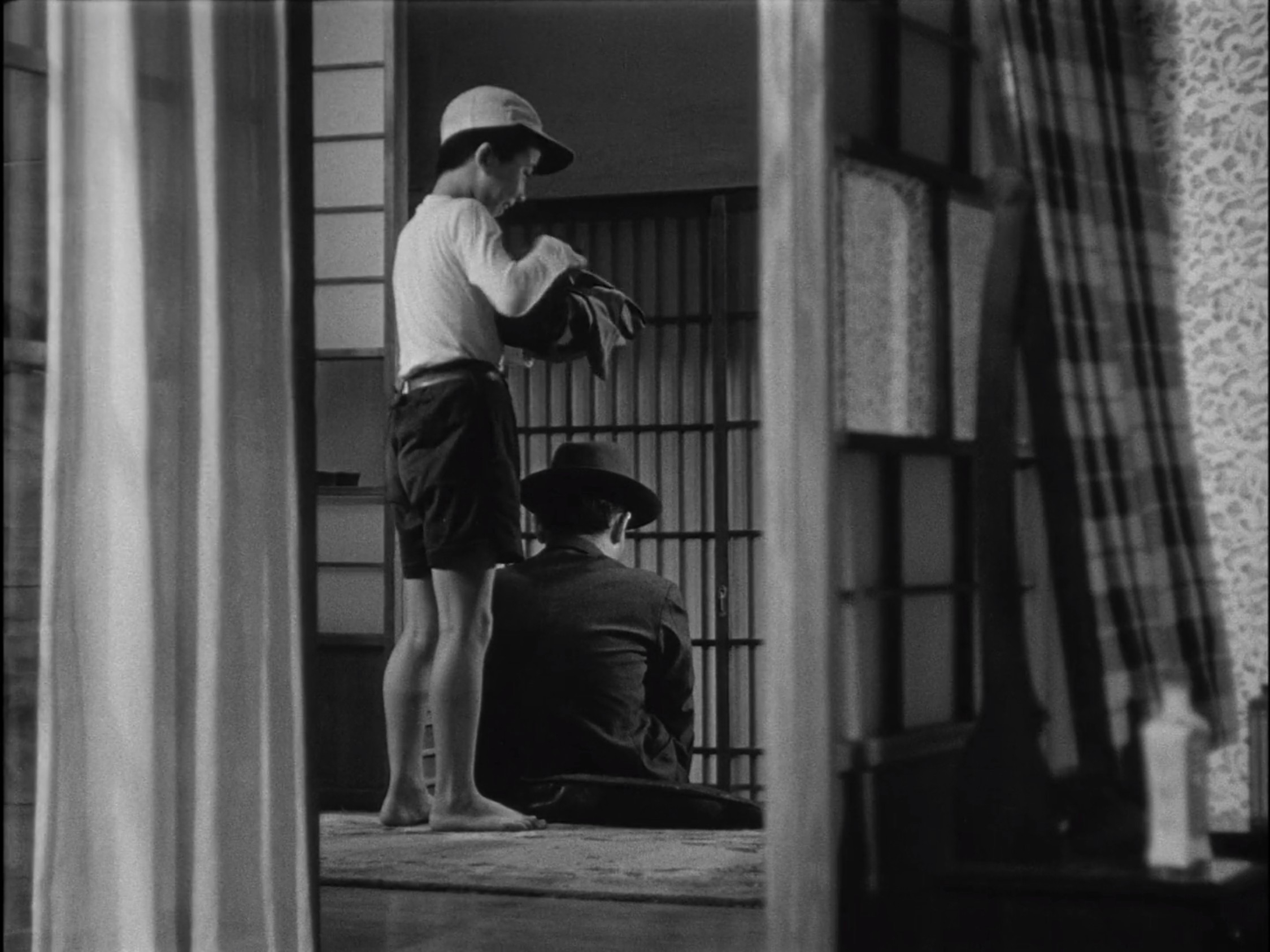
Incidentally, these close quarters also make it difficult for the characters of Early Summer to hold private conversations away from curious ears, thereby injecting small flashes of humour into the drama. Right after Noriko finishes gossiping with Fumiko, the sliding door behind them reveals the room where her brother Kōichi has been eavesdropping, while another discussion between Kōichi and his mother Shige can barely progress without the constant interruption of young children popping in. The claustrophobia of this space is especially felt in the narrowing of frames through doorways, though even as family members are squeezed into tight spaces, the décor itself renders their personal environments as extensions of themselves. Ozu’s mise-en-scène is never flashy, but always resourceful in its arrangements of each teapot, kettle, and sake bottle, crafting cluttered obstructions in low angles where parallel and perpendicular lines otherwise dominate.
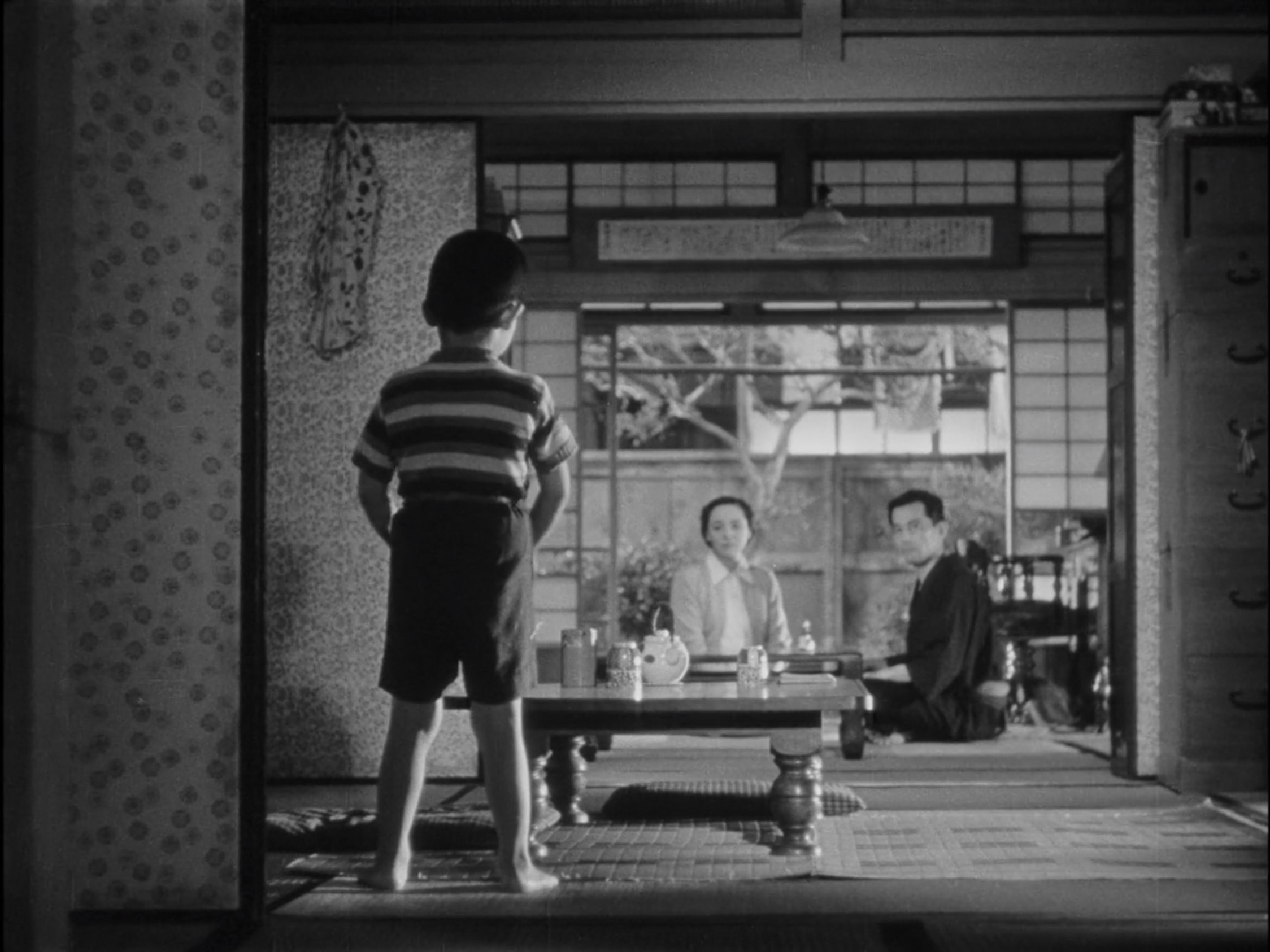
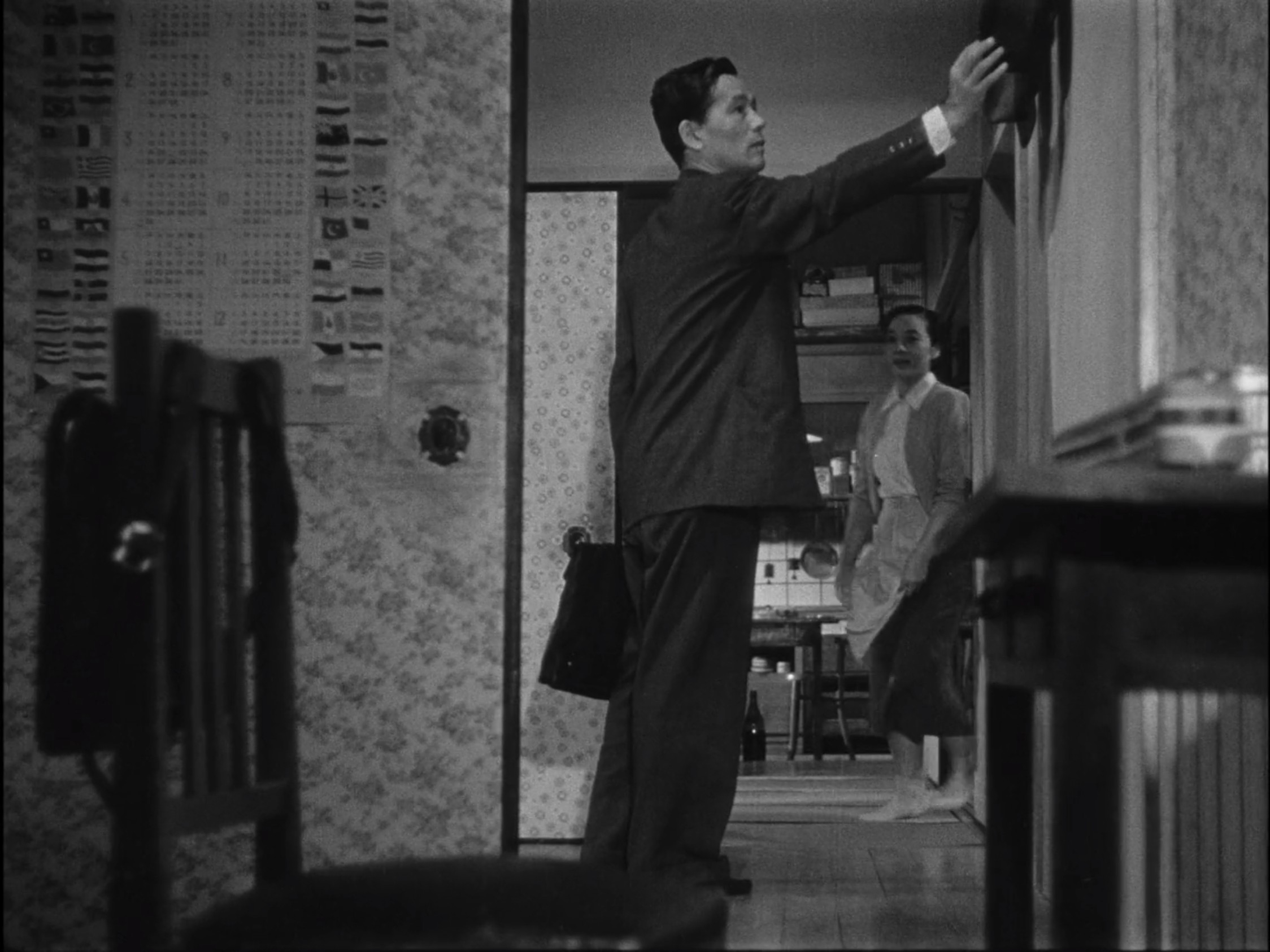
Every now and again, these stray items will become gorgeous frames of their own too, as we observe in one composition that encloses the background through a chair and desk. Even in the absence of characters altogether, the formal consistency of this visual choice further binds them to their environments. Ozu frequently begins scenes right before family members enter and lingers a few seconds after they leave, tangibly recognising their presence in those short moments of silence. Every now and again, he works in his trademark shot of hanging laundry as well, imprinting cut-outs of human shapes onto his scenery and effectively representing the family through the mundane artefacts of their existence.
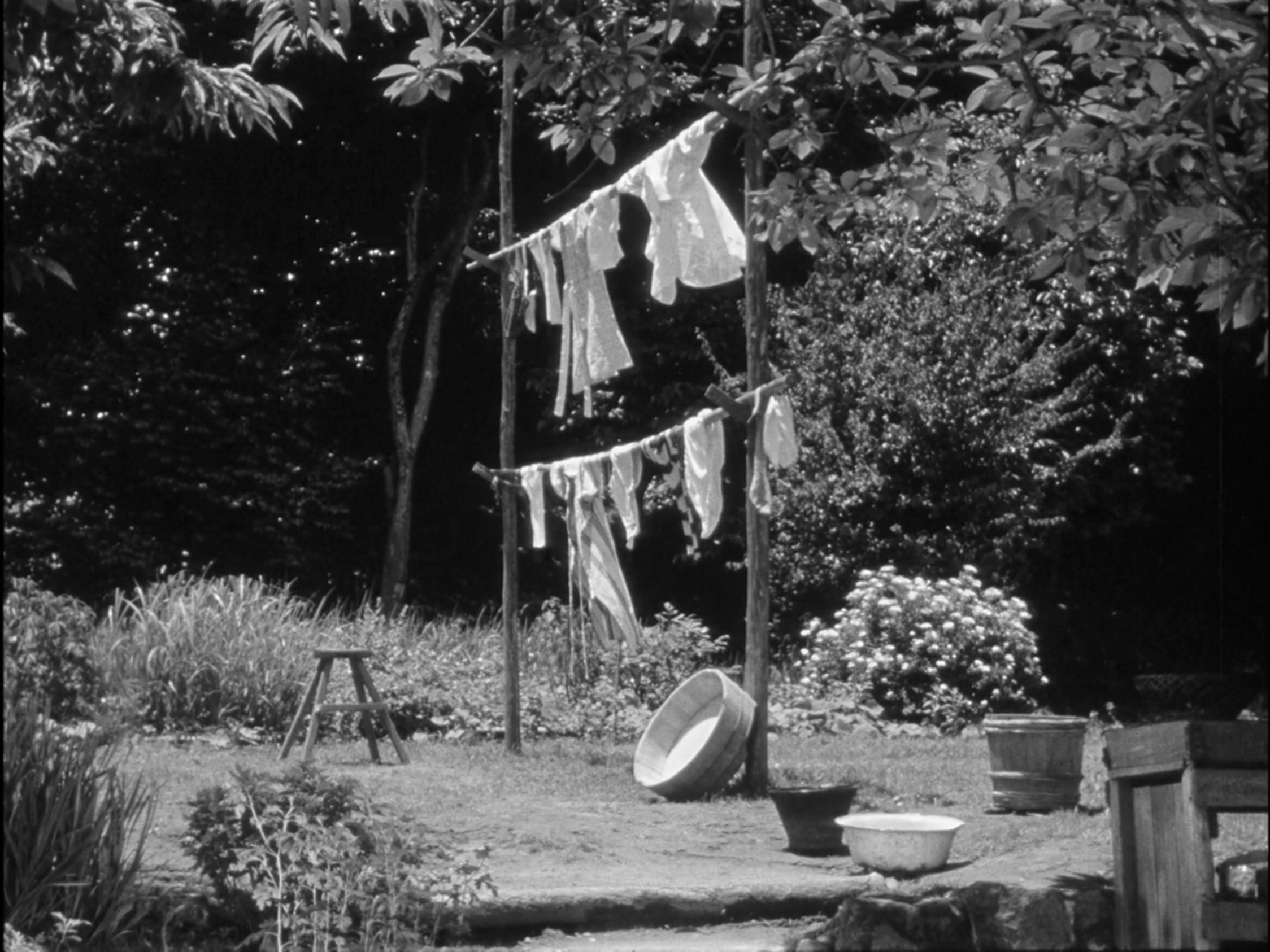
Most evocative of all though are the recurring shots of birdcages owned by Noriko’s father Shūkichi, hanging outside the family home. Ozu’s use of this motif to open the film and its intermittent return in pillow shots is especially crucial in underscoring the nature of her predicament. Like Shūkichi’s pets, she is fed and cared for by her parents, and marriage would similarly ensure a stable future. Nevertheless, the pressure to enter this patriarchal institution imposes the same limitations upon her as those bars separating the birds from the open sky, confining her to a life beyond her control.
It is not surprising that it is the men of the family who hold the most outspoken views about the matter, nor that they become more candid with the visit of her elderly uncle, who proclaims Noriko’s age of 28-years-old to be ideal for marriage. His gentle presence is not necessarily treated as a threat, though when her boss recommends a middle-aged friend for her to marry and Kōichi tersely criticises shifting gender roles at mealtimes, Noriko holds even more tightly onto her independence.
“It’s deplorable, what’s happened since the war. Women have become so forward, taking advantage of ‘etiquette’.”
“That’s not true. We’ve just taken our natural place. Men were too forward up to now.”
“That’s why you can’t get married.”
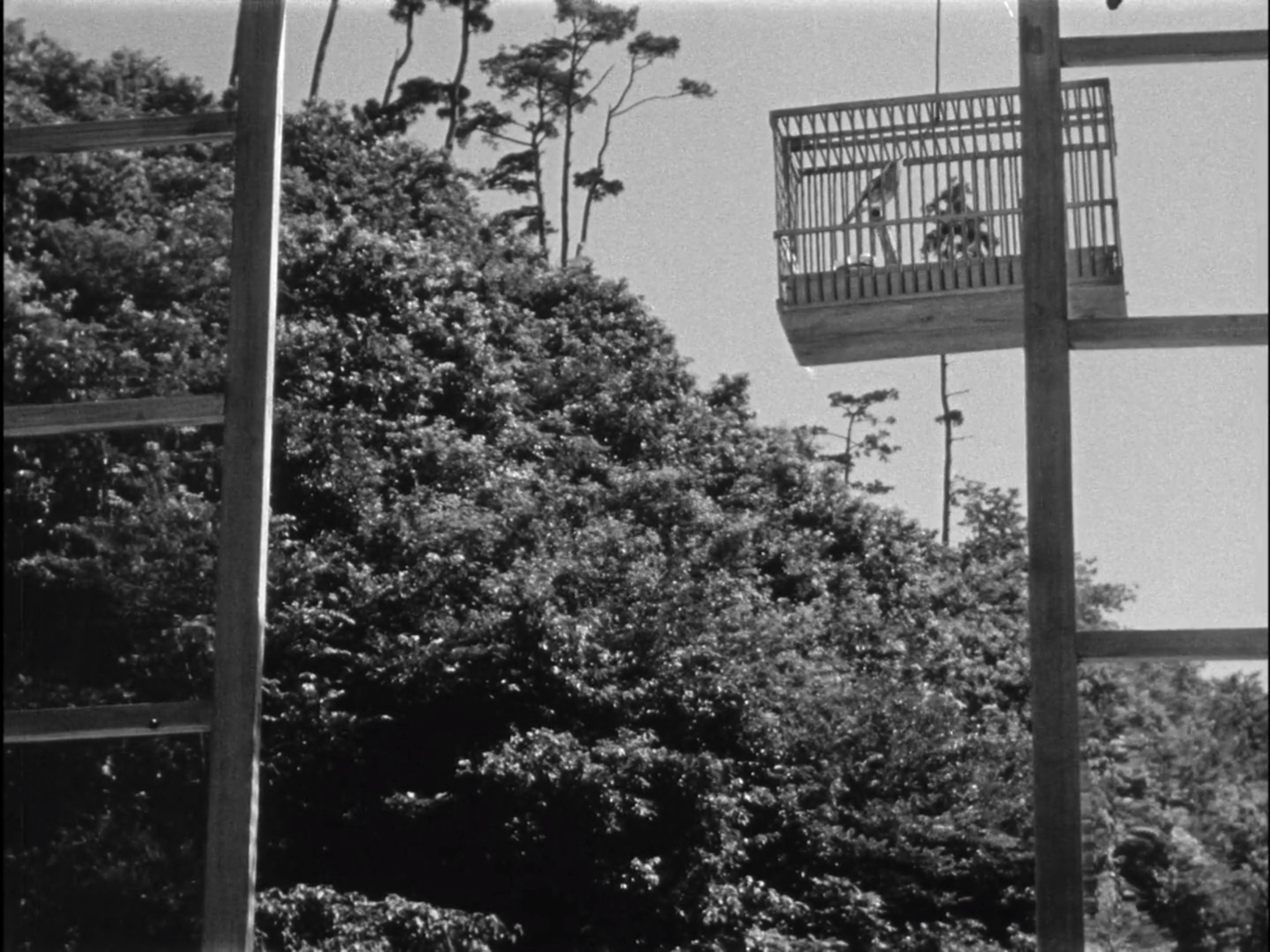
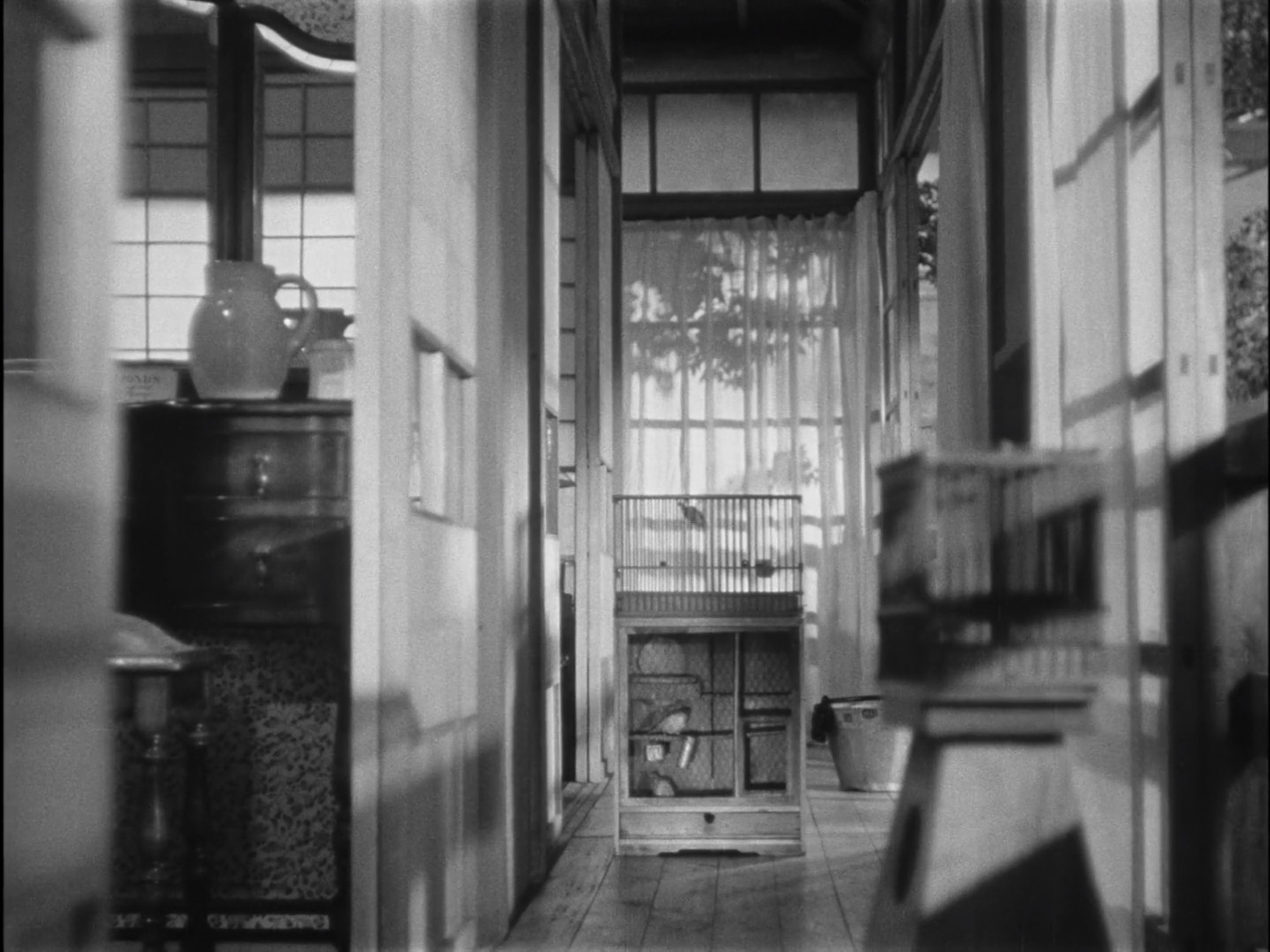
On virtually every level of her characterisation, Ozu defines Noriko as a modern woman. As we discern in her idolisation of Audrey Hepburn, the seeping of Western culture into 1950s Japan pushes the boundaries of traditional values, and the question of her potential queerness even arises with relatively little judgement. Her sincere support of her family and intelligent assertion of her autonomy only add to the warmth of Setsuko Hara’s radiant performance, marking her as a bright beam of sunlight with a smile that seems impossible to wipe away.
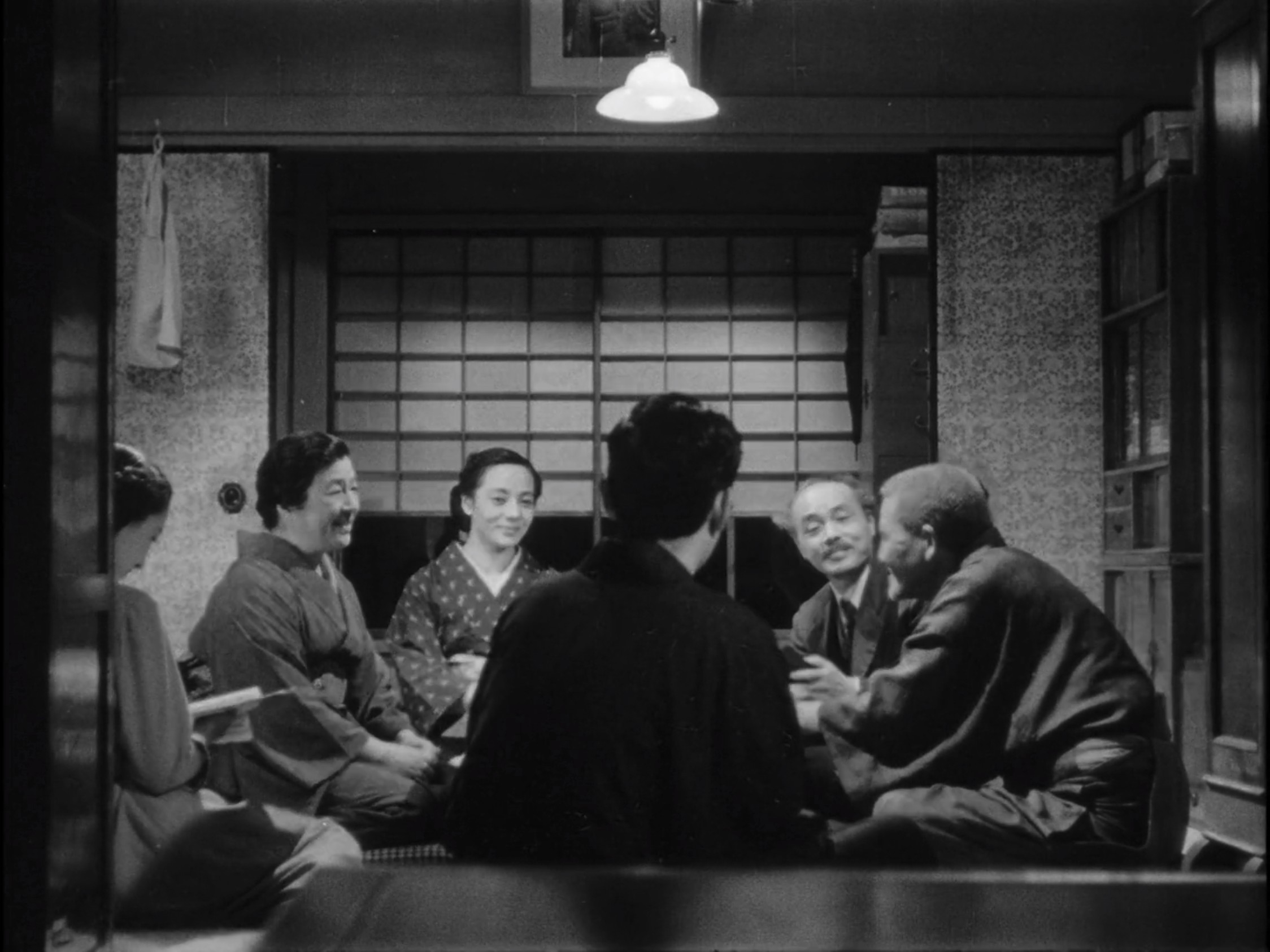
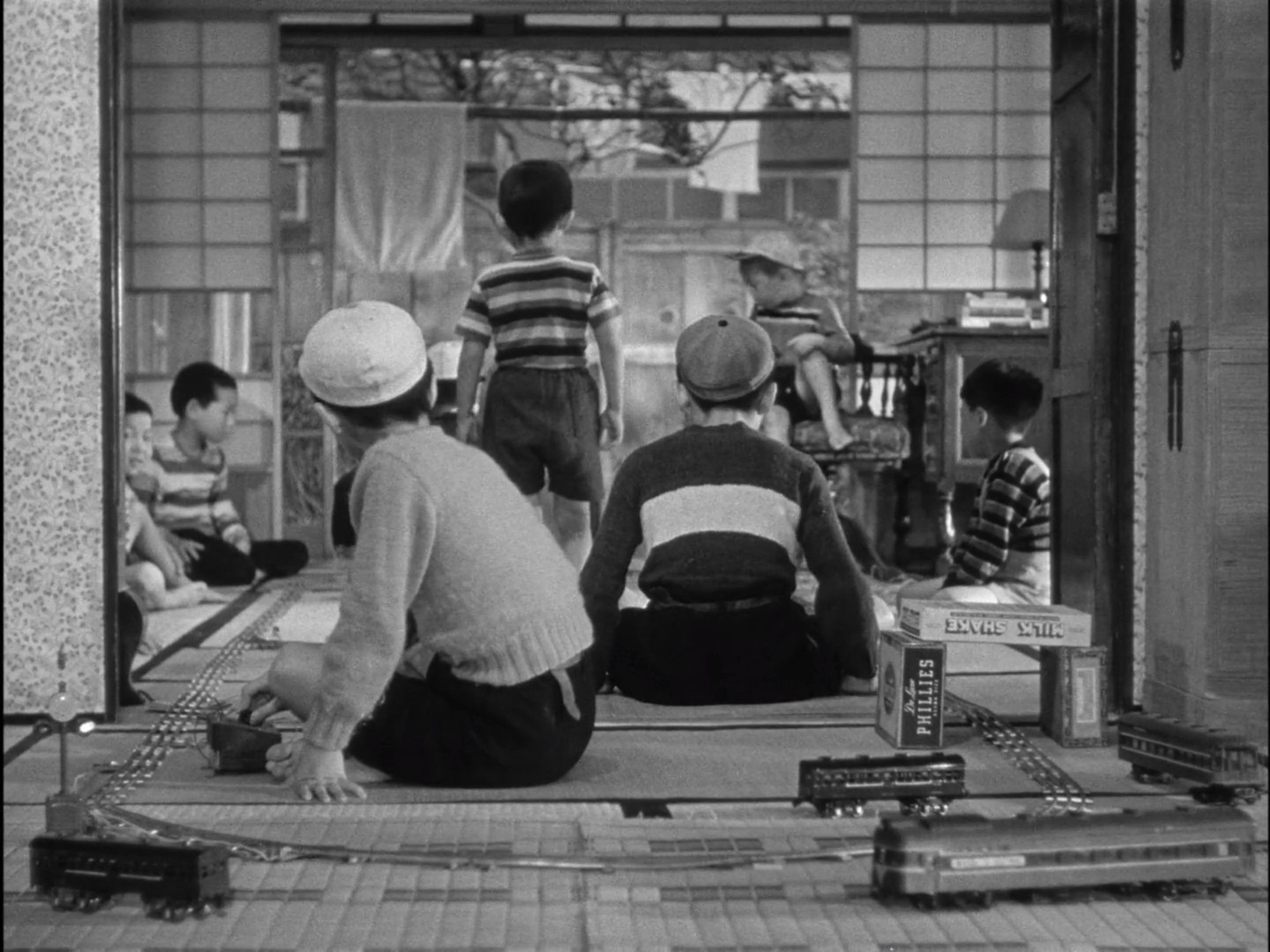
After all, just because Noriko values individuality does not mean that family unity is inconsequential to her. Ozu thoughtfully paints out the harmony of these interactions in his staging, turning interiors into landscapes of staggered bodies rising up like hills, and often hovering the camera just above ground level. In these scenes he absorbs both the comfort of family gatherings and the sorrow of Noriko’s imminent departure, while outside his transient, languid pillow shots elaborate on the Buddha statues and office buildings of an ever-changing world.
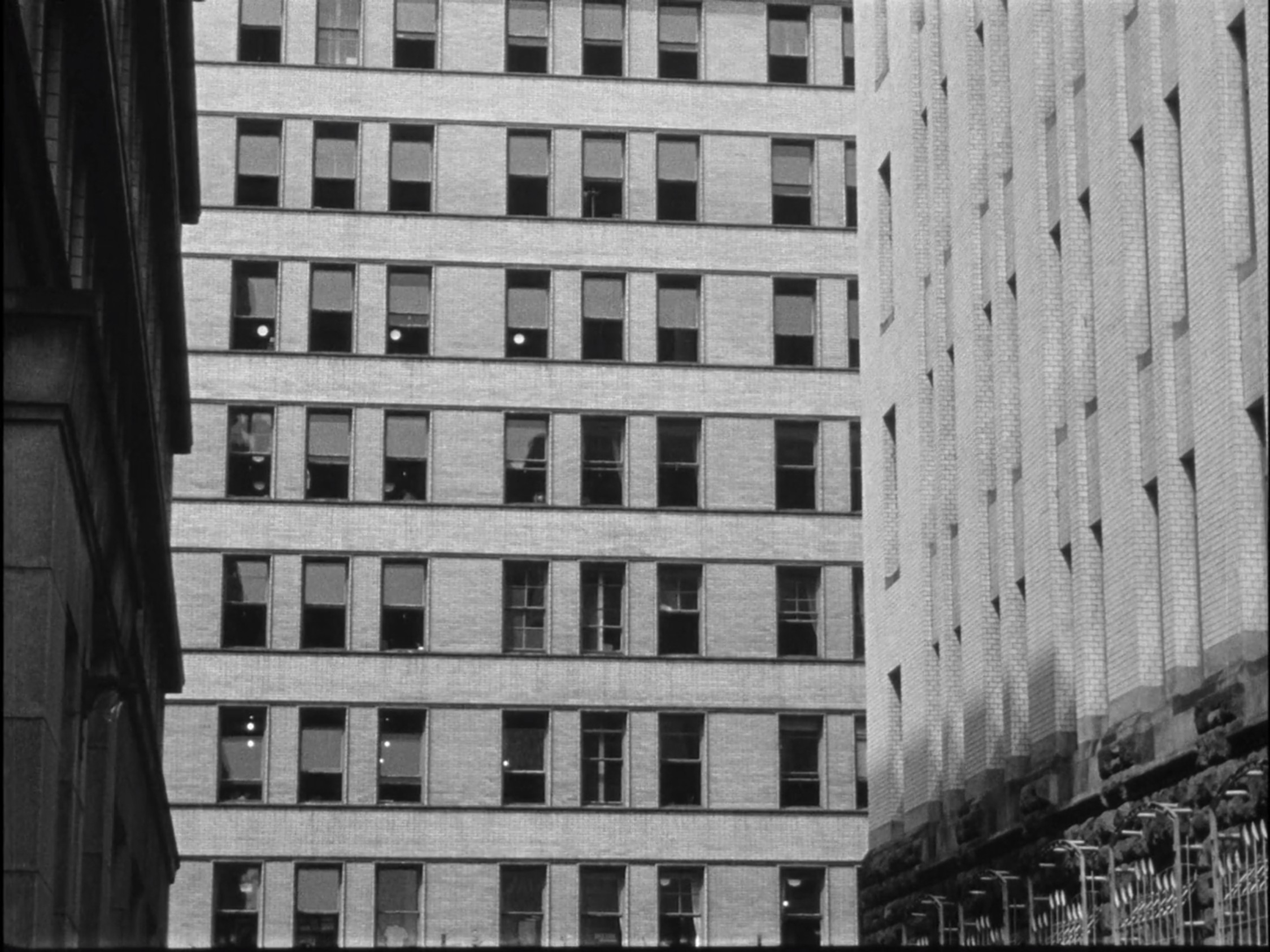
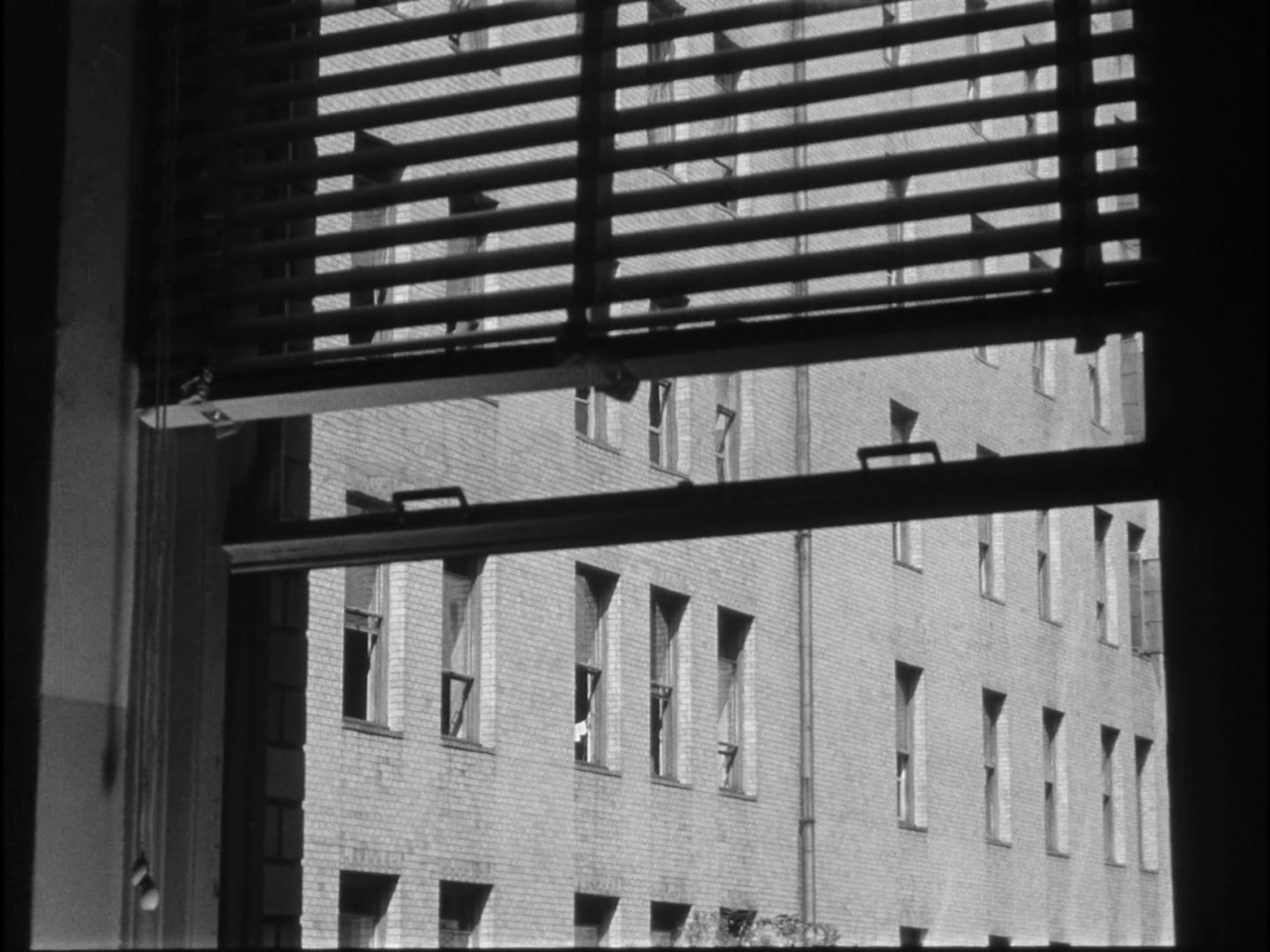
With Ozu’s narrative precariously lingering between Japan’s past and future, his characters uneasily navigate a culture desperately tearing itself away from reminders of life before the war. As we watch Shige almost get hit by a car and witness a level crossing frustratingly block Shūkichi’s path, we are invited into brief meditations on a fluctuating society that also weigh on Noriko’s mind. Through her arranged marriage to an older, wealthy man, she feels as if she has been reduced to a mere pawn in some social game she has no interest in, stripping her of the right to live happily and securely.
It is not this discontentment though which drives her to impulsively accept an informal marriage proposal from her childhood friend. Despite Kenkichi Yabe’s plans to move to the countryside with his daughter, Noriko is swayed by the sudden realisation that this is simply the right choice for her, shedding her image as a woman of Tokyo. She feels that she can “trust him with all my heart and be happy,” and although she insists this is not love, Aya begs to differ. From an outsider’s perspective, that quiet certainty in her choice is indistinguishable from love itself.
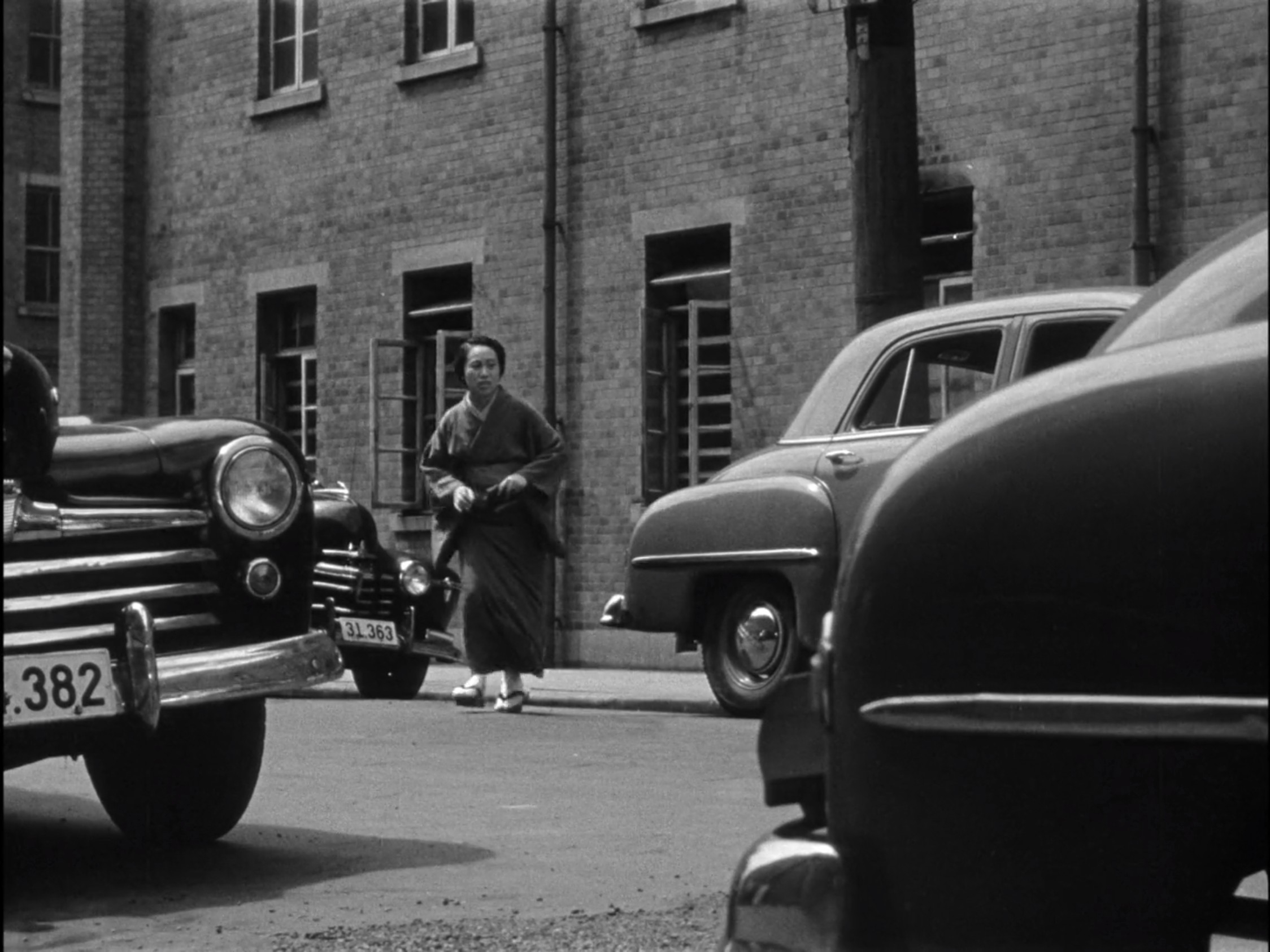
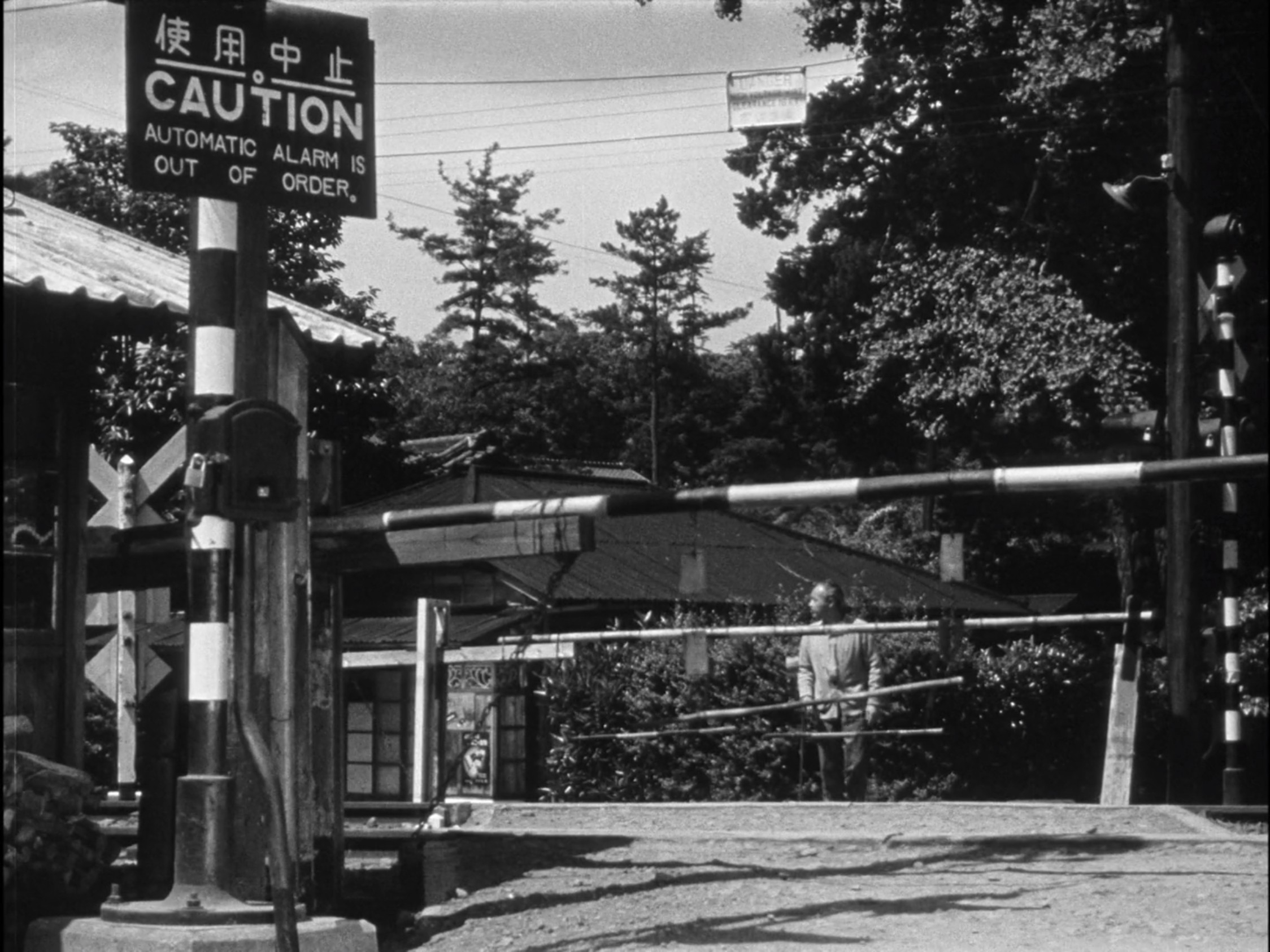
Naturally, Noriko’s family is not so keen on this unexpected deviation from Japanese tradition. It is a purely thoughtless act to them, and even in Ozu’s blocking we find a sudden turn towards disconnection, sitting painfully in grating silences. The only time we have previously seen Noriko’s bright smile waver was in the growing separation in her friendship group, so her family’s disappointment is made all the more heartbreaking for the immense shift we witness in Hara’s disposition. Although she cries over the pain she has inflicted on her loved ones, she also recognises her decision to marry her friend as the best course of action, thus emerging as an emblem of compassion amid the generational divide.
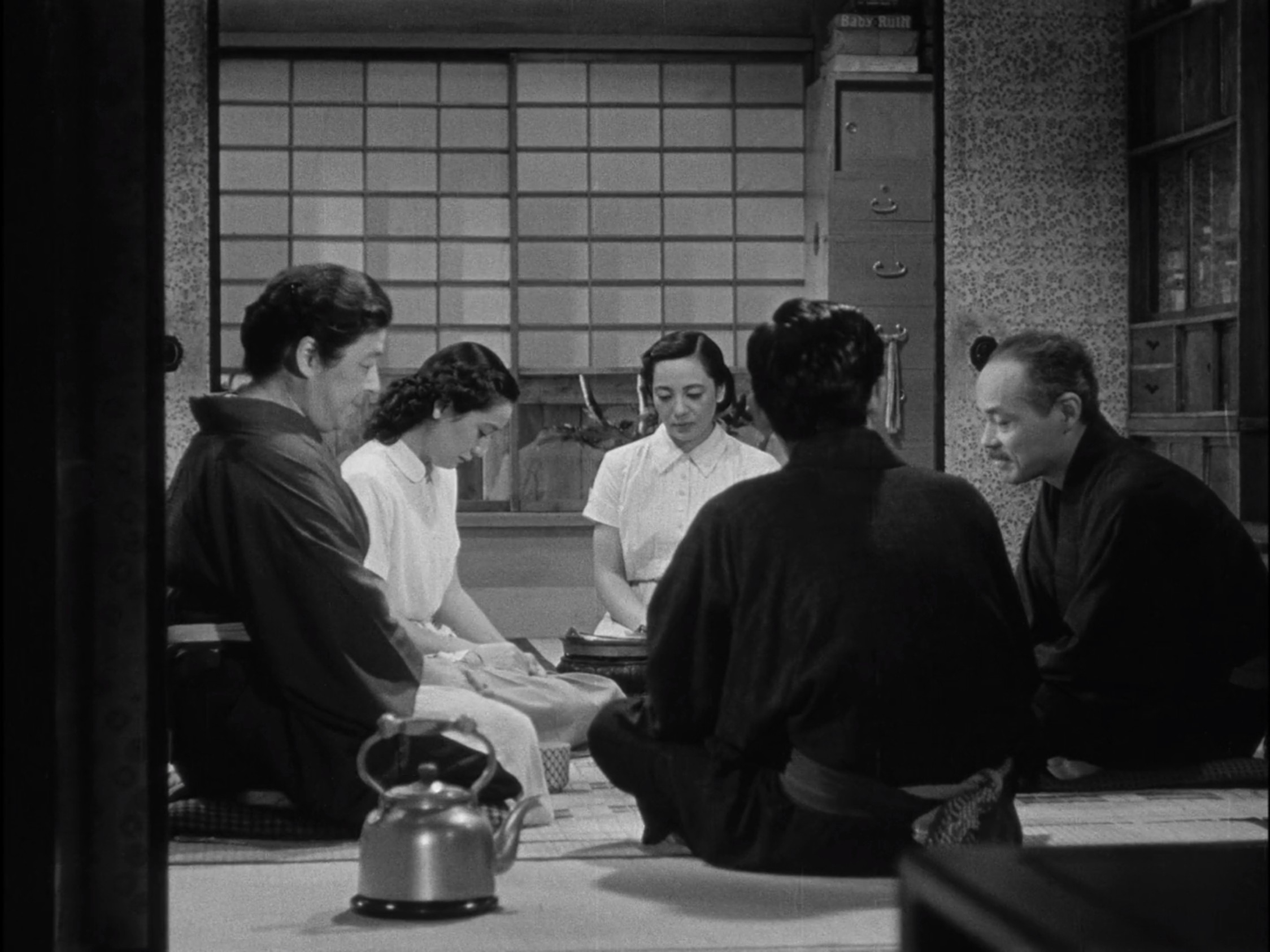
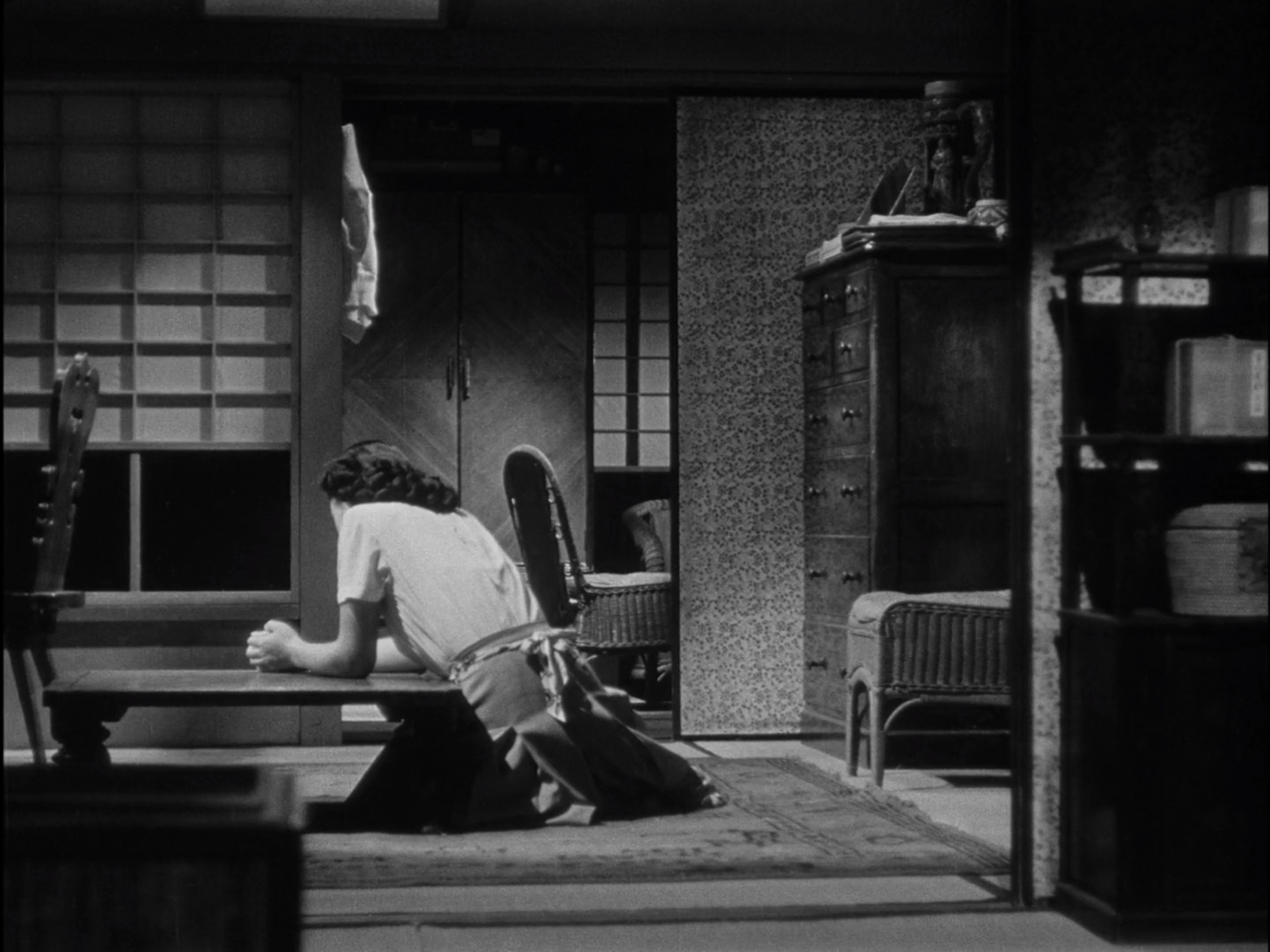
Noriko is a self-proclaimed optimist after all, unafraid of poverty and willing to embrace the challenges of becoming a stepmother. As she wanders bare beaches and streets with the married Fumiko one last time, Ozu sets in motion a reparation between modernists and traditionalists, recognising that understanding is not required for cooperation. Perhaps the harmonious family photo he stages right before her departure marks the closest these generations will ever get to complete unity, but at the same time, there is also a promise of new beginnings that lifts Ozu’s bittersweet conclusion into something a little more hopeful. “Our family has been scattered. But we’ve done better than average,” Noriko’s mother ponders, and there lies the sobering acceptance of time’s forward march in Early Summer, introspectively embraced with both wistful reminiscence and eager, uplifting inspiration.
Early Summer is currently streaming on The Criterion Channel.
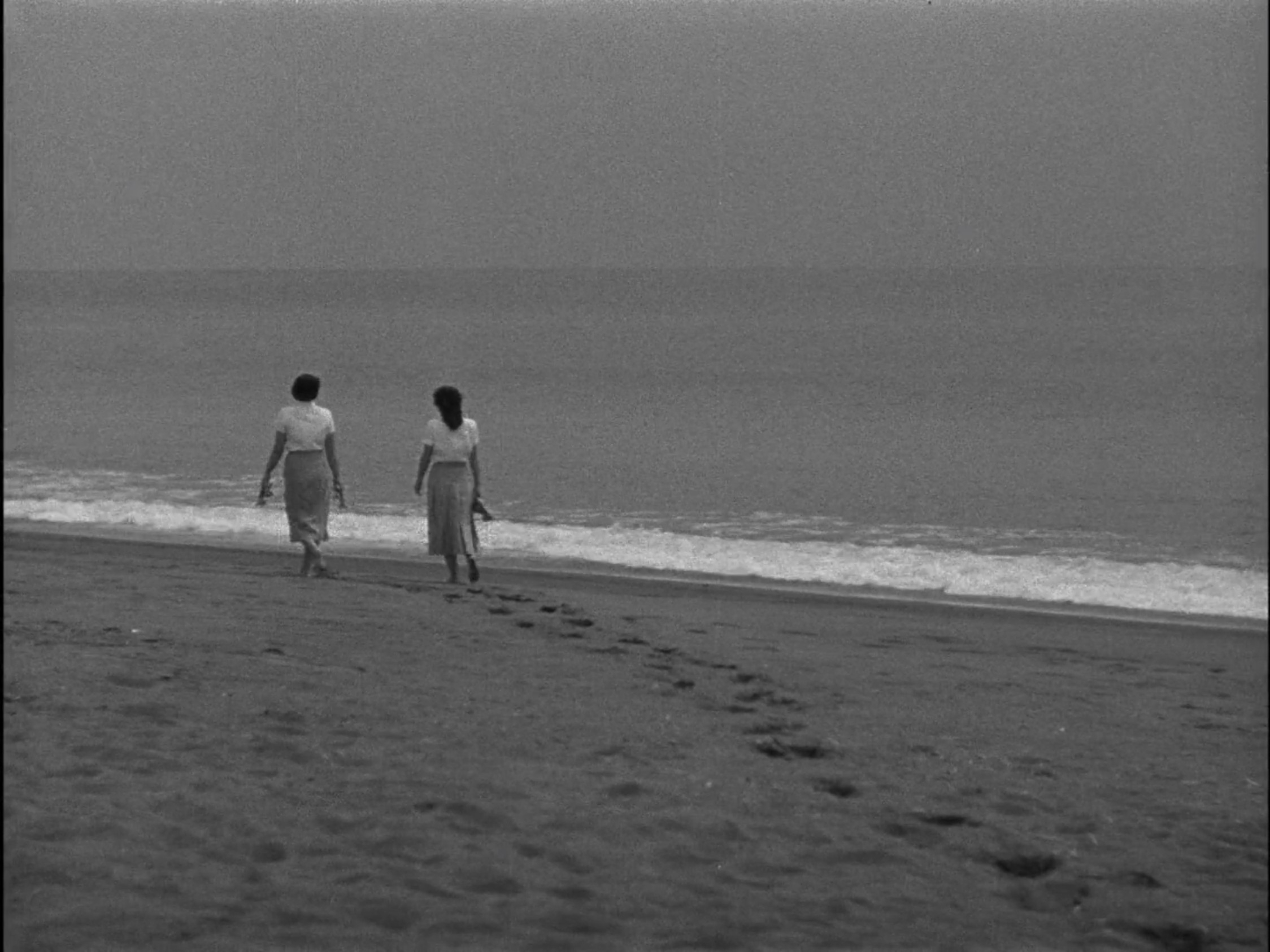

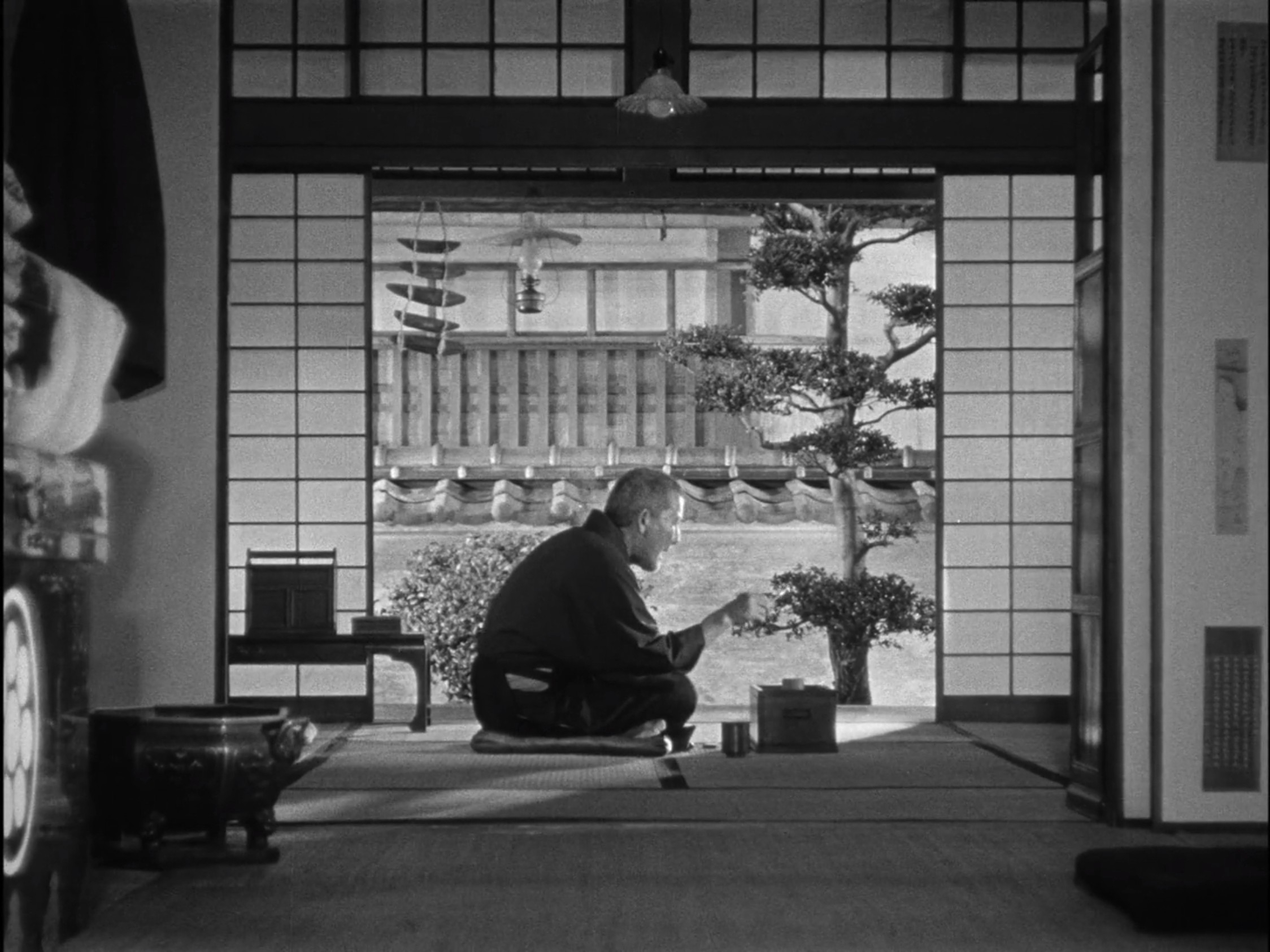
Pingback: The Best Films of the 1950s Decade – Scene by Green
Pingback: The Best 250 Films of All Time – Scene by Green
Pingback: An Inexhaustive Catalogue of Auteur Trilogies – Scene by Green
Pingback: The 50 Best Screenwriters of All Time – Scene by Green
Pingback: The 100 Best Edited Films of All Time – Scene by Green
Pingback: The 50 Best Film Editors of All Time – Scene by Green
Pingback: The 100 Best Shot Films of All Time – Scene by Green
Pingback: The 50 Best Cinematographers of All Time – Scene by Green